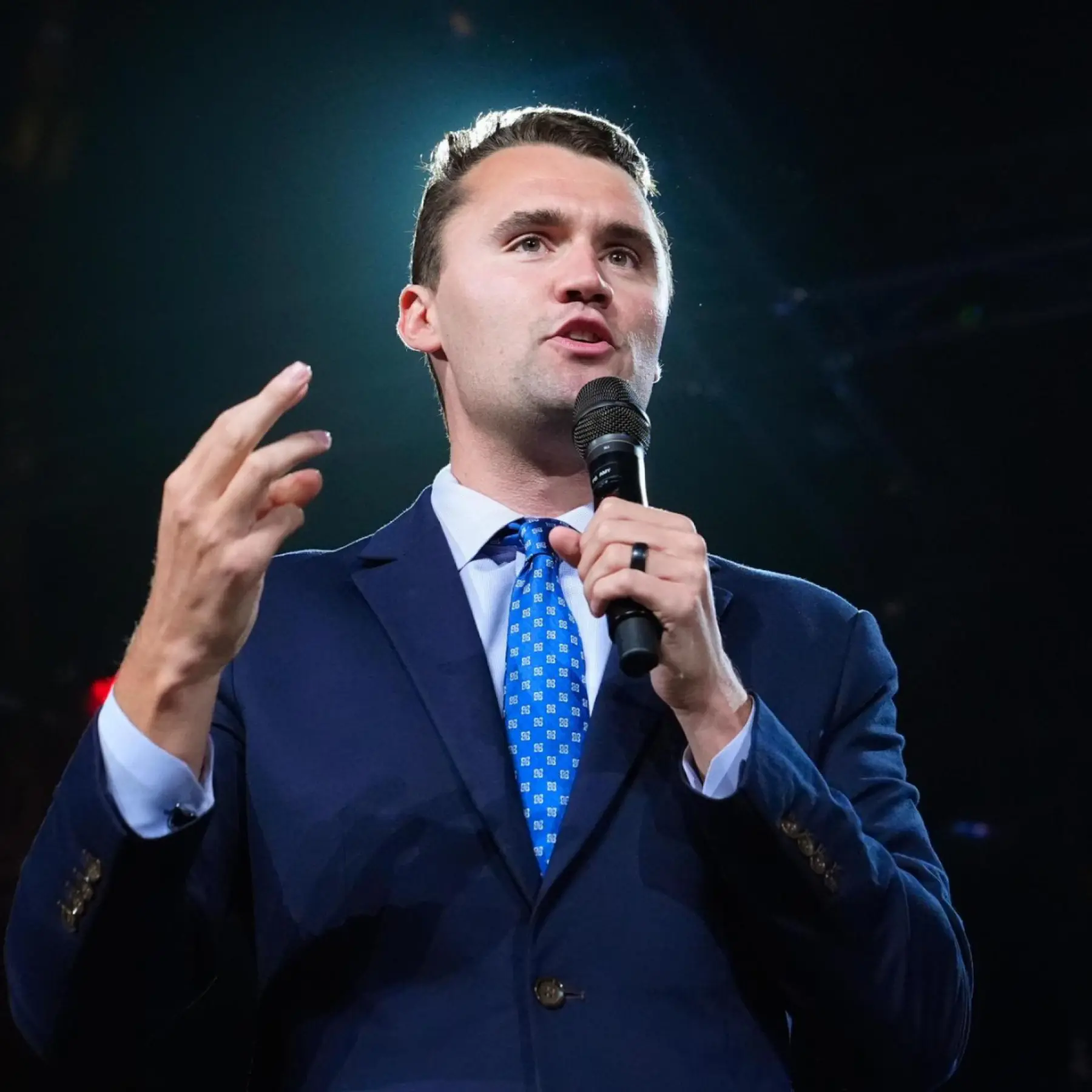
The divide between political parties has never been wider. Tensions have been prevalent amongst the countless debates online. This polarization became especially prominent on September 10, when Charlie Kirk, founder and president of Turning Point USA, a non-profit conservative youth activist organization, was assassinated while hosting a debate at Utah Valley University. His assassination has sparked debates online and in the school. There has been an influx in student posts focusing on gun control, and political discourse in America. Opinions on Kirk vary, however one thing stays consistent: most students agreed that no belief should ever cost someone their life.
For many LM students, Kirk’s confrontational style and controversial beliefs made him a polarizing figure. “I did not view Charlie Kirk in the most positive light. I respected his goal to discuss what he believed in…but I did not agree with most things he said,” said Amelia Krivitzky ’27. Some saw his approach as extreme. Kate Christini ’28 said “I viewed him as a little crazy. Some of his statements were a little outlandish…he just seemed very radical.”
Despite the controversy he often stirred up, related to both his methodology and ideology, Krivitzky said she’d “often watch Kirk…[just] to see what he was up to and putting into the world.” There is no doubt, agree or disagree with his views, that he was an influential figure in the online and political worlds. Among the many topics he debated, abortion stood out. “I heard him debate the topic of abortion many times. I have witnessed him cover many political topics such as immigration, the war in the Middle East, and gun laws, but one that I have seen many times over has definitely been abortion.” Krivitsky said.
When the news broke, LM students expressed feelings of shock and disbelief. “When I first heard about the shooting, I was surprised because I didn’t believe he would actually be assassinated,” said Christini. Benjamin Schur ’27 agreed, “It was difficult for me to believe that someone with political views that were so different from mine was no longer with us, and I think it speaks to the detrimental nature of American society.”
Even those who strongly disagreed with Kirk stressed that violence is never justified: “Yes, of course I felt horrible for his family,” Krivitsky said. “One of the reasons I disliked him was because of his stance on gun laws, so of course I did not support him being shot.”
Kirk’s assassination opened up discussion on political violence and gun control. Christini said, “People are getting killed for what they believe in…for years and it’s just getting worse, but people only seem to care now that it’s him.” Some students had a broader perspective on Kirk’s impact. Jackson Berry ’26 said, “Although I don’t agree with some things that he said, I thought that what he did–going around and having conversations with people who didn’t agree with him–is an incredibly brave and important thing to do. Our nation was founded on debate.”
Due to the publicity of the assasination, almost every student had heard the news by the end of the school day on September 10. Headlines ranged, with some heavily critical of his life, some sympathetic towards his loss, while others remained neutral. For many the event raised questions about Kirk’s politics and the role of online debate culture.
Students of LM were exposed to a wide variety of these headlines, setting the tone for discourse regarding what Kirk stood for, as well as political violence due to modern divides in opinions. No matter anyone’s political opinions, all LM students confronted the fact that political violence lives on in America. As a student body, we can grow from this: let the assassination fuel healthy debates, put the distorted influences of the media to light, and strive to keep civil discourse civilized. As Berry said, “when we fail to have conversations with those whose opinions differ from ours, we lose touch with the human aspect of politics.”




